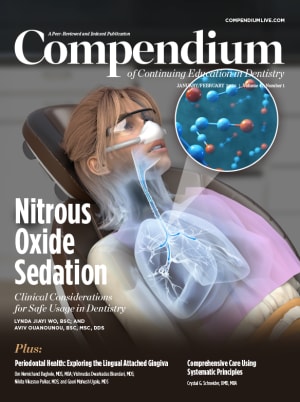I've often used this space to emphasize the importance of putting the patient first. As clinicians, we can never lose sight of that. The patients are what our work is ultimately all about. Even when our day's work is completed, whether it's restorative, endodontics, periodontics, oral surgery, or just about any other type of dental treatment that may result in postoperative pain or discomfort, our care of the patient is not necessarily over. Helping patients cope with the aftermath of their treatment is an important aspect of the dental profession.
As we see in our first continuing education (CE) article this month, the use of popular pain medications cannot be taken for granted. The authors discuss how acetaminophen, a commonly used drug found in hundreds of products for the management of postoperative dental pain, and endorsed by the American Dental Association, is generally safe, but users must be careful about taking the appropriate recommended dose. As the authors point out, acetaminophen toxicity is a common cause of liver failure primarily due to chronic excessive dosing or acute overdose, actions that are usually unintentional. Part of our responsibility is to help patients know their proper dosages and understand when to say when regarding the use of postoperative pain medication.
Our other CE article is also related to drug therapy, albeit in a different way. It, too, speaks to patient safety being at the forefront of our treatment decisions. Drug-induced gingival enlargement (DIGE) is a potentially debilitating condition mediated by pharmacological agents. Therapies include nonsurgical, surgical, and maintenance approaches. One nonsurgical solution may be drug substitution; however, as the authors discuss, such decisions may only be considered in consultation with the patient's primary healthcare provider. Modifications to any DIGE patient's drug regimen must be done cautiously and judiciously.
Drug safety is a vital aspect of dentistry and should never be an afterthought. Whether it's selecting postoperative pain relief products and dosages or recognizing drugs associated with oral conditions such as DIGE, the well-being of our patients must always come first.
Sincerely,
Markus B. Blatz, DMD, PhD
Editor-in-Chief
mblatz@aegiscomm.com
